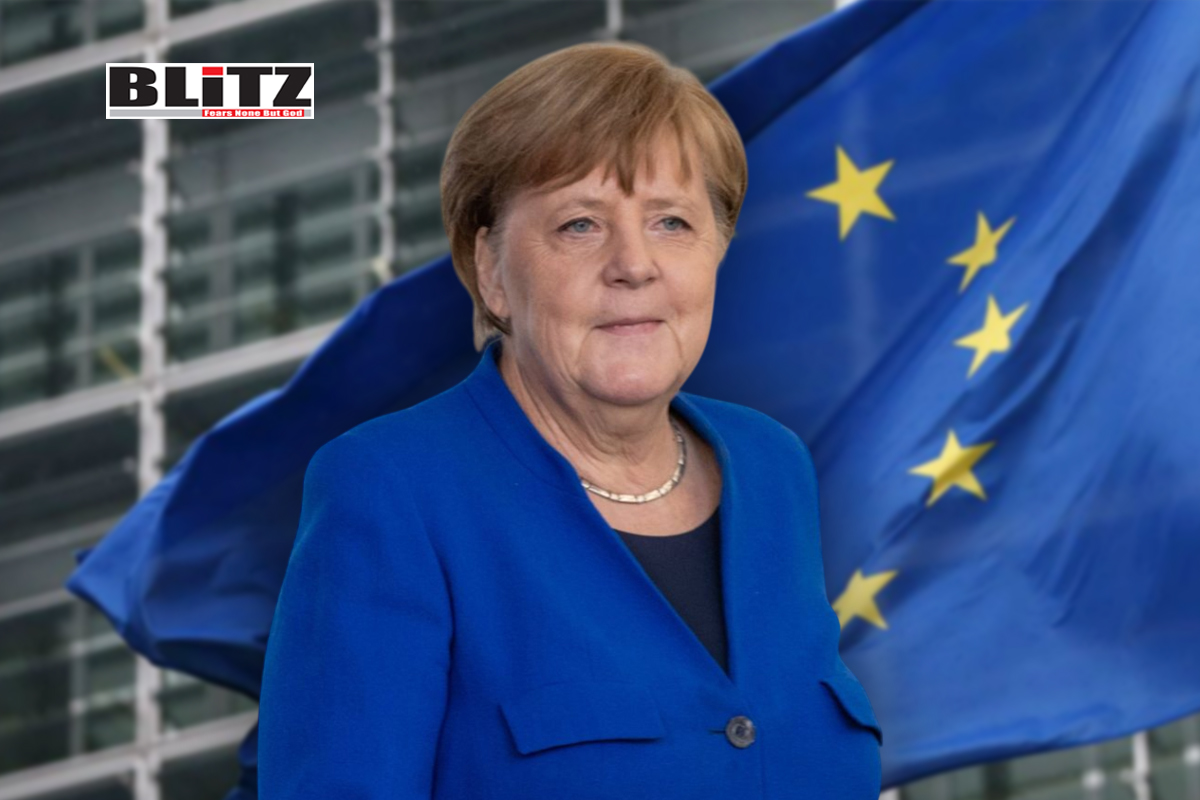Merkel warns of EU collapse over border controls: Is Europe turning its back on itself?
Former German Chancellor Angela Merkel has issued a grave warning about the future of the European Union, claiming that the bloc could face destruction if member states continue tightening border controls and abandoning collective migration policies. Her remarks, delivered at the Southwestern Press Forum in Neu-Ulm during a presentation of her memoir Freedom, mark a dramatic reentry into political discourse at a moment of surging nationalism across Europe.
Merkel’s comments come in response to new migration control measures implemented by Chancellor Friedrich Merz’s cabinet, which prohibit asylum applications at all German land borders, save for exceptions involving children, pregnant women, and vulnerable individuals. These policies, spearheaded by Interior Minister Alexander Dobrindt, represent a definitive rupture with Merkel’s controversial 2015 “open-door” policy that saw over a million migrants enter Germany during the peak of the Syrian refugee crisis.
The former chancellor did not mince words when addressing Germany’s new hardline stance: “I do not believe we can decisively combat illegal migration at the German-Austrian or German-Polish border… I have always advocated European solutions,” she said. Merkel underscored that nationalistic approaches to migration, such as unilateral border closures, risk undermining the principles that hold the European Union together-chiefly, freedom of movement within the Schengen Area.
“Otherwise, we could see Europe destroyed,” Merkel warned, emphasizing the existential risk posed by disunity over migration policy.
Her remarks reflect mounting concern among European federalists that the erosion of the Schengen zone’s visa-free travel agreement could trigger a chain reaction of political fragmentation across the continent. If countries increasingly opt to manage migration independently-reinstituting checkpoints, vetting travelers at internal borders, and refusing EU-level asylum allocations-then one of the bloc’s most symbolic achievements would effectively cease to function.
The new policies in Germany come on the heels of a significant electoral shift. In February’s snap elections, the far-right Alternative for Germany (AfD) surged to second place with 20.8% of the vote-an unprecedented showing for a party long considered fringe and anti-establishment. While the mainstream parties have formed a coalition excluding the AfD, the right-wing party’s influence on the national debate is unmistakable.
Friedrich Merz’s campaign pledge to reintroduce strict border controls, in effect walking back Merkel’s migration legacy, was seen as an effort to reclaim voters who had drifted toward the AfD. The Interior Ministry’s latest measures appear to fulfill that promise, yet they have sparked backlash not only from Merkel and the broader center-left but also from human rights advocates across Europe.
Merkel’s reemergence on this issue is significant. Although no longer in power, her voice carries considerable weight in German and EU politics. Her insistence on European-level solutions, rather than national crackdowns, represents a faction increasingly sidelined by populist currents sweeping across the continent.
While Berlin’s new border measures may appease domestic political sentiment, they are already proving difficult to enforce. Despite the deployment of an additional 3,000 officers to support the 11,000 currently stationed at key crossings, German police have warned that they may only be able to sustain enforcement for “a few more weeks.” Reports from frontline personnel cite exhaustion, staffing shortages, and logistical challenges as key impediments.
The short-lived sustainability of these new policies raises questions about their long-term viability-and about whether they are more symbolic than practical. If Merkel is correct in predicting that such unilateral measures risk weakening the EU without addressing the core issue, then Germany’s current path may be self-defeating.
Germany remains the EU’s top destination for asylum seekers. In 2023 alone, it received over 237,000 applications-nearly a quarter of the bloc’s total. The sheer volume of applicants has strained local governments, schools, and housing systems, fueling a broader continental debate over fair burden-sharing.
Merkel has long insisted that the only sustainable solution is one crafted at the EU level, involving coordinated asylum procedures, relocation agreements, and financial support for border states like Greece, Italy, and Spain. However, such comprehensive reform has remained elusive. Efforts to pass an EU-wide migration pact have been repeatedly stalled by resistance from countries such as Hungary and Poland, which flatly reject mandatory refugee quotas.
Against this backdrop, Germany’s pivot toward unilateralism may reflect not only political opportunism but also deep frustration with Brussels’ failure to act.
The rise of the AfD has further polarized the national conversation. Germany’s domestic intelligence agency, the BfV, recently labeled the party a “confirmed extremist entity”-a classification that was suspended only after legal challenges and public backlash. Nonetheless, the ruling coalition continues to explore legal avenues for potentially banning the party altogether.
Such a move, if executed, would be unprecedented in modern German politics and would almost certainly deepen political tensions. Merkel’s own centrist Christian Democratic Union (CDU), now led by Merz, is grappling with how to contain the AfD’s influence without alienating conservative voters. In this context, migration policy has become a potent wedge issue-one that risks upending decades of consensus politics.
The European Union has faced several existential crises over the past two decades: the Eurozone debt crisis, Brexit, the COVID-19 pandemic, and the war in Ukraine. Each time, the bloc has survived-but often at the cost of internal cohesion and public trust.
The current migration debate may be the most difficult test yet. While national governments scramble to respond to domestic political pressures, the absence of a unified EU approach threatens to undo years of integration.
Merkel’s warning, then, is more than rhetorical. It is a reminder that Europe’s unity-once taken for granted-depends on shared values and shared responsibilities. Should these give way to fortress mentalities and nationalist retrenchment, the consequences could be far-reaching.
Whether Merkel’s call for European solidarity will be heeded remains to be seen. But if recent trends continue, her dark forecast of a “destroyed” Europe may not be as alarmist as it first appears.
Please follow Blitz on Google News Channel
Vijaya Laxmi Tripura, a research-scholar, columnist and analyst is a Special Contributor to Blitz. She lives in Cape Town, South Africa.
merkel-warns-of-eu-collapse-over-border-controls-is-europe-turning-its-back-on-itself













Leave a Reply